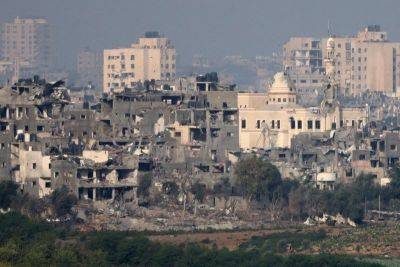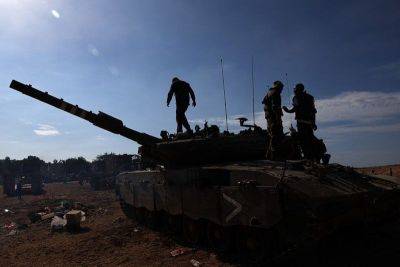Philippine stocks rebound amid Israel-Hamas conflict uncertainty
MANILA, Philippines — The local stock market bounced back yesterday as investors continue to evaluate the potential impact of the Israel-Hamas conflict.
The Philippine Stock Exchange index (PSEi) jumped by 11.91 points or 0.19 percent to close at 6,264.07, following a knee-jerk reaction to the Israel-Hamas conflict.
The sectoral gauges were mixed but mostly tilted upwards. Mining and oil, property, financials and services ended in the green while holding firms and industrial closed in the negative territory.
Total value turnover reached P4.5 billion. Market breadth was positive, 96 to 77 while 50 issues were unchanged.
Unicapital Securities said investors are still on the sidelines waiting for key economic data including US inflation, which is set to be released on Oct.12. The inflation data will provide a cue on the US Federal Reserve’s next move during its next policy meeting in November.
Meanwhile, Asian shares climbed after Wall Street advanced on potentially encouraging news about interest rates, which have been dragging markets lower since the summer.
US futures slipped and oil prices also fell back slightly after surging Monday following Israel’s declaration of war on Hamas following its surprise attack from the Gaza Strip.
Oil prices, which had climbed Monday on worries about the violence in the Middle East, fell back.
The area embroiled in conflict is not home to major oil production, but fears that the fighting could impact the crude market sent a barrel of US oil up $3.59 to $86.38. Brent crude, the international standard, rose $3.57 to $88.15 per barrel.
One potential outcome of the violence is a slowdown in Iranian oil exports, which have been growing this year, according to Barclays energy analyst Amarpreet Singh. Less supply of crude would raise its price, all else equal.
The conflict could also hurt the possibility of improving relations between Israel and Saudi Arabia, which is the world’s second-largest producer of oil.
Oil prices already were volatile. A barrel of US crude had jumped from less than $70 during the summer to more than $90 last week, raising the pressure on inflation and the overall economy. It pulled back sharply last week







